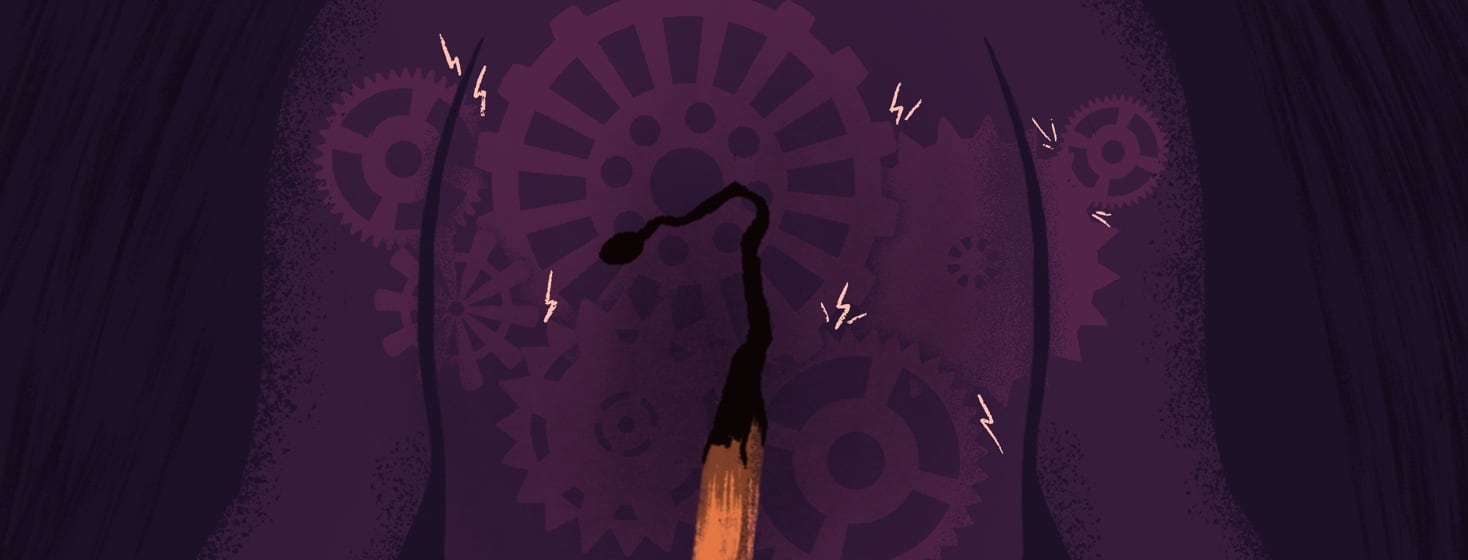The Persistence of Pain
People with rheumatoid arthritis are very familiar with pain. In fact, we’re a little too familiar with it! Even if we are fortunate enough to be on a treatment that is working fairly well, pain is usually still part of daily life.
A new study found that noninflammatory pain, or pain not directly connected to inflammation markers, persists for RA patients (even with treatment!) and remained unacceptable after two years despite improvement in inflammation marker tests.1
Addressing the noninflammatory pain of RA
While this research focused on new RA patients and followed them through 21 months of combination therapy treatment, people who have had RA for longer (such as myself) can relate to this experience. In the study, nearly a third of the patients reported persistent, unacceptable pain despite being on a treatment regimen that improved their inflammation markers (such as C-reactive protein/CRP).1
Inflammation isn't always to blame
These results suggest that RA pain is not solely related to inflammation, but has other origins or contributions to the pain experience. While treatment that quiets the disease and inflammation activity can help with pain, it seems pain also comes from other sources.
The researchers labeled this “refractory pain” and defined it as “unacceptable pain despite inflammatory control suggesting a noninflammatory cause.”1
In their conclusion, they suggest that RA treatment needs to better address noninflammatory pain and that this pain may potentially come from “increased responsiveness to stimuli in the nervous system.”1
RA is more than inflammation
My personal experience has been that my pain is not just inflammation. I think these researchers are failing to note the physical damage from the RA, not just to joints, bones, but also to soft tissues.
I get achy bones, not just joints. I get sore muscles and soft tissues as well. This pain may not start as RA, but the damage from the disease very much contributes to what I think of as my diverse pain landscape.
Severe joint damage may be to blame
My doctor has told me many times that treatments will not undo the decades of severe RA damage that I have endured in my body. He has said that my pain likely doesn’t come from inflammation (or infrequently does), but that the long-term impacts of the RA are a significant source of my pain.
I’m sure my nervous system is also involved in my pain, but I’m not sure it is a major contributor. Why would my wrist just suddenly start aching terribly from the bones? That isn’t just hitting a nerve - that is definitely something else.
There are a lot of unknowns
My sense is that we still really don’t know much about pain. We know how to deaden it by quieting the nerves (the painkillers we’re all familiar with), but we don’t really understand where RA pain comes from and why it persists.
I also wonder if RA patients have different pain experiences and phases (or types) of pain at the beginning and throughout the evolution of our disease. In my memory, the pain was very different when I was younger and newer to RA. My pain has changed along with my condition.
My aches and pains have evolved
On any given day, my body aches. Sometimes it is dull and dispersed through my joints. Sometimes it is concentrated in certain joints or areas. It’s always there and it's always changing.
Throughout my life with RA, I try to adapt to better cope with my pain. I can’t say I’m much wiser about it, but generally know it is aggravated by fatigue and stress. When I can calm my mind with relaxation and meditation, it can help, but it doesn’t cure my pain.
Hopefully, research that grows our understanding of the origins of RA pain will illuminate possible new treatments to address the sources of our pain experiences.

Join the conversation